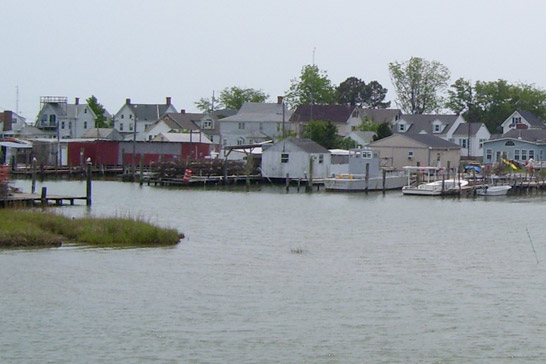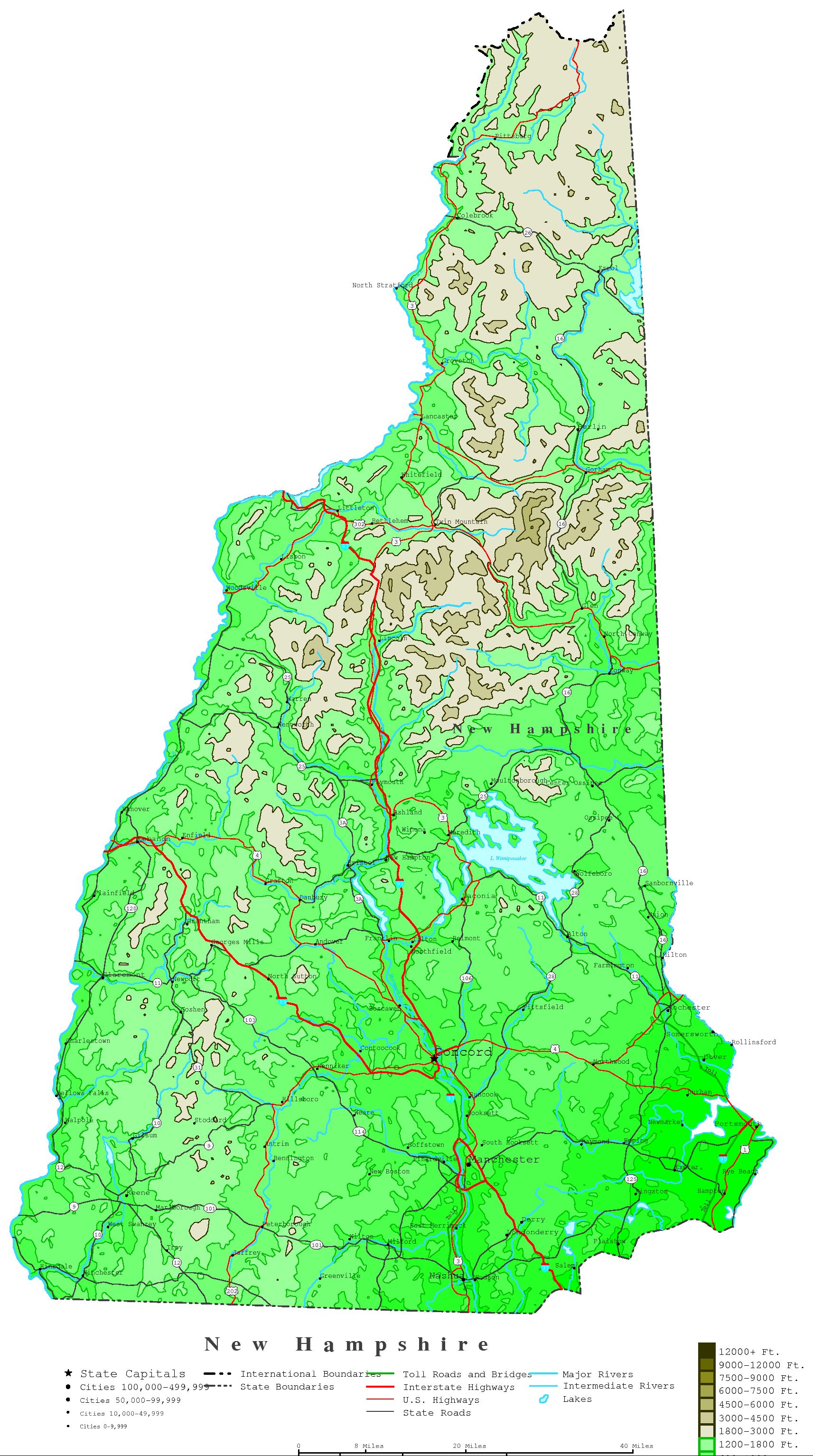Blue Highways: Ewell, Maryland
Unfolding the Map
 William Least Heat-Moon (LHM) takes a boat to Smith Island for an overnight stay and a fascinating conversation with Alice Venable Middleton, at the time an octogenarian who had lived over sixty years on the island. His conversation with her reminded me of my grandmother, who I will remember in this post. To find Smith Island and the village of Ewell, please go to the map. The image at right is Maryland's state dessert, the Smith Island cake. It looks like nine layers of awesome!
William Least Heat-Moon (LHM) takes a boat to Smith Island for an overnight stay and a fascinating conversation with Alice Venable Middleton, at the time an octogenarian who had lived over sixty years on the island. His conversation with her reminded me of my grandmother, who I will remember in this post. To find Smith Island and the village of Ewell, please go to the map. The image at right is Maryland's state dessert, the Smith Island cake. It looks like nine layers of awesome!
Book Quote
"'I have a question for you,' I said. 'Tell me what's the hardest thing about living on a small, marshy island in Chesapeake Bay.'
"'I know that and it didn't take sixty-three years to figure it out. Here it is, wrapped up like a parcel. Listen to my sentence. Having the gumption to live different and the sense to let everybody else live different. That's the hardest thing, hands down.'"
Blue Highways: Part 9, Chapter 14
 Ewell, Smith Island, Maryland. Photo by by Jenny Myers and Tim Christion and is found at their blog Tim and Jen's Wedding. Click on photo to go to host page
Ewell, Smith Island, Maryland. Photo by by Jenny Myers and Tim Christion and is found at their blog Tim and Jen's Wedding. Click on photo to go to host page
Ewell, Maryland
This post is going to be about my grandmother, my mom's mother named Mary Cox, that I've mentioned briefly in couple of other posts. In the quote above LHM is speaking to Alice Venable Middleton, a longtime resident of Smith Island in the Chesapeake Bay. He had spent the night and the better part of two days talking with her and learning about the island and in the process, her views on life. This quote comes at the end of his interview with her and it reminds me of my grandmother. The two women were probably only alike in a few ways - my grandmother was probably not as formally educated as Alice Venable Middleton, but they both lived their lives around fishermen in a fishing village and both seemed to have a great store of common sense built around life experiences.
My grandmother was truly, I believe, one of the last of the pioneers and as such it was my privilege to be able to listen to her stories when she was still alive. Her family, the Hauns, were immigrants from Austria and lived in places like Michigan and Texas before settling in a remote part of Northern California where, in a little area called Branscomb, they built a little redwood lumber mill. My grandmother grew up in this rugged area, literally hewn out of wilderness, a few miles from the Pacific coast. Growing up in a wilderness meant that, like her pioneer forebears, she had to learn skills that would serve her well later in life.
She wanted to get an education and attend college to become a nurse, but a brief stint down near the Bay Area didn't work out. She married a fisherman named Louis Cox and when the economy crashed in 1929, he went to work as a logger in the woods and she raised my mother and her four siblings in logging camps. The life was difficult, but it was also something for which she was prepared thanks to how she was raised. My mother remembers what almost seems to me like a magical childhood. She went to school in a little red schoolhouse in the woods, and the entire redwood forest was her playground. My grandmother kept a clean house and even in the worst of times she and my grandfather kept food on the table for their four children.
Eventually, my grandmother moved to town with her husband and four kids as the economy picked up and he was able to go back to his first occupation, fishing. When Louis died of cancer in the early 60s, she was left widowed right around the age of 50. Most women might have given up at that point in their lives, but my grandmother was definitely not like most women. She went back to school and realized her dream of becoming a nurse and worked in the Mendocino Coast Hospital until her early 70s. She bought a little house in the country where she raised horses and provided a lot of grandkids with an opportunity to ride for pleasure and in horse shows. She made two trips to Austria to discover her heritage and remained in contact with her Austrian cousins until the end of her life.
I remember my grandmother as a stern but loving woman who did a lot for her kids and grandkids. She was a lifelong Democrat and supporter of Franklin Roosevelt because she felt that his policies helped her family and countless others to survive. She and I, when I got older, had lots of discussions about the state of politics. No Democrat, in her mind, could ever hope to live up to Roosevelt and no Republican was worth talking about. However, as liberal as she was in her economic policies, she was a social conservative. She didn't like what she saw as sexual immorality, nor the trend of protest and drug use popular and common among the younger people of my generation and the generation before me. She always gave me a bad time about the long hair and beard I wore then.
Yet despite her personal feelings, she never made anybody feel unwelcome. When my friends from college came home with me, she always was extremely nice to them and would share the wonders that came out of her oven with them. The only time I ever heard her seem prejudiced was when she told me stories about the Indians who scared her when they walked past her house when she was growing up in Branscomb. These were most likely Native Americans from what is now known as the Round Valley Reservation. They were often drunk, she said, and they frightened her. When I gently suggested that the Native Americans she saw probably lived on reservations and in extreme poverty, she didn't dispute me, but she never was able to shake that early childhood memory. Yet I have no doubt that if I had brought home a friend or a girlfriend who was Native American, or African-American, she would have been just as welcoming to them as she was to any of my friends. I did bring home a Mexican-American friend with me a couple of times, and he was charmed by my grandmother, who said that she and the rest of us in Fort Bragg were "just backwoods bunnies."
My grandmother was living proof of what Alice Venable Middleton states in the quote above. She had the "gumption" to live different, though the way she lived was what she knew and she didn't see it as necessarily living different but living better. She also had the sense to let others live different. What others did, as long as it didn't interfere with her, was their own business. She might not have liked it or agreed with it, but she seemed to feel that people should live their own lives. Her extended family, her kids and their kids, sometimes tested her patience, but she didn't interfere in their business unless asked. That was "the hardest part," as Alice Venable Middleton stated it above, and my grandmother would have agreed with her.
My grandmother died at the age of 95, still living in her own home, still independent. She was feeding her chickens when an aortic aneurysm burst and she died instantly. We all still miss her, and most of us could use some of her well-placed and timed home-spun wisdom at times. I credit her with firing in me an urge to travel after listening to her stories and seeing her photos of Austria. Even in death she still serves as an inspiration to the generations that succeeded her.
Musical Interlude
This song, written and performed by Alicia Keys, was released after the death of her grandmother. I have heard it described as being full of regret. We all regret things that we wanted to say to our loved ones before they died. When my grandmother died, my mother and sister were visiting me in New Orleans, and my mom was extremely upset at not having been home. Yet my sister and I agree that my grandmother probably would have preferred it that way. She died on her feet, feeding her chickens, and dependent on nobody. Sure, I wish I could have seen her once again, but she went the way she wanted. We should all be so lucky.
If you want to know more about Ewell and Smith Island
Baydreaming.com: Smith Island
New York Times interactive article: Water is Life on Smith Island
Smith Island Cultural Center
Visit Smith Island
Wikipedia: Ewell
Wikipedia: Smith Island
Next up: Oxford, Maryland




 Friday, November 23, 2012 at 12:31PM
Friday, November 23, 2012 at 12:31PM